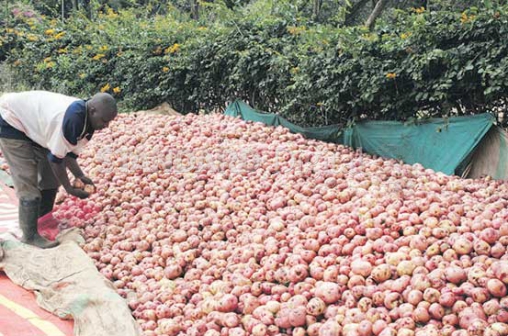×
The Standard e-Paper
Home To Bold Columnists

What is more devastating for a farmer than a drought that strikes at a time crops are just beginning to bloom? Pretty nothing else.
For Dorcas Nyawira, a 32-year-old mother of one, watching her two-acre plantation of maize dry away was gut-wrenching. The rains failed in Nyeri during the last maize-planting season, spelling doom for many farmers who hoped for a bountiful harvest.